The first day of the wildfowling season is no Glorious Twelfth, says George Downing — it’s even better for those who love the sport

As the engine fell silent, Wigeon looked up at me sharply from the passenger footwell, her ears pricked, her eyes expectant. The green glow of the digital display on the dashboard read 04:30. Our last wild fowling trip on 20 February had marked the end of the 2016-2017 season and the start of a long summer of rest, punctuated only by a few days of pigeon decoying and rough shooting. But the wait was over: 1 September had finally arrived and we were once again venturing out into that magical place between high and low water, between day and night, where and when the wildfowl flight.
Much of my wild fowling is done with only Wigeon by my side, but today I was joined by photographer Sarah Farnsworth, whose remit was to commit the morning to film and capture some of the essence of wild fowling on the foreshore. The conditions seemed good as we pulled on waders and shouldered our respective equipment. Good for photography that is, for the night sky was full of stars and the wind barely moving the tips of the rushes.
When it comes to fowling, the best conditions are often the foulest; a strong wind or perhaps a snow squall. However, as we began the half a mile or so walk along the coastal path, a thin veil of mist hung above the low water channel beside us.
This far up the estuary, a short distance from Westbury-on-Severn, the river Severn is only perhaps 100 yards wide at low water, stretching out to around a quarter of a mile at the top of the tide. With high water having passed earlier that morning, there was no concern of the legendary Severn bore catching us unexpectedly. This phenomenon has been a blessing to me in the past as it disturbs birds with its wake, sending them fleeing up river to seek out more sheltered areas and, on occasion, providing the chance of a shot.
This story is from the September 13,2017 edition of Shooting Times & Country.
Start your 7-day Magzter GOLD free trial to access thousands of curated premium stories, and 9,000+ magazines and newspapers.
Already a subscriber ? Sign In
This story is from the September 13,2017 edition of Shooting Times & Country.
Start your 7-day Magzter GOLD free trial to access thousands of curated premium stories, and 9,000+ magazines and newspapers.
Already a subscriber? Sign In
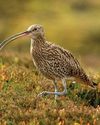
United we stand
Following United Utilities' decision to end grouse shooting on its land, Lindsay Waddell asks what will happen if we ignore our vital moors
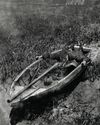
Serious matters
An old gamebook prompts a contemplation on punt-gunning

They're not always as easy as they seem
While coneys of the furry variety don't pose a problem for Blue Zulu, he's left frustrated once again by bolting bunnies of the clay sort
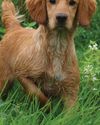
Debutant gundogs
There's lots to think about when it comes to making the decision about when to introduce your dog to shooting
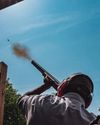
When the going gets rough
Al Gabriel returns to the West London Shooting School to brush up on his rough shooting technique
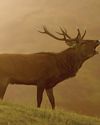
The Field Guide To British Deer - BDS 60th Anniversary Edition
In this excerpt from the 60th anniversary edition of the BDS's Field Guide To British Deer, Charles Smith-Jones considers the noise they make
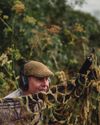
A step too far?
Simon Garnham wonders whether a new dog, a new gun and two different fields in need of protection might have been asking too much for one afternoon's work
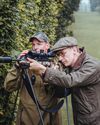
Two bucks before breakfast
A journey from old South London to rural Hertfordshire to stalk muntjac suggests that the two aren't as far detached as they might seem
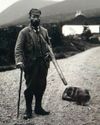
Stalking Diary
Stalkers can be a sentimental bunch, and they often carry a huge attachment to their hill

Gamekeeper
Alan Edwards believes unique, private experiences can help keepers become more competent and passionate custodians of the countryside